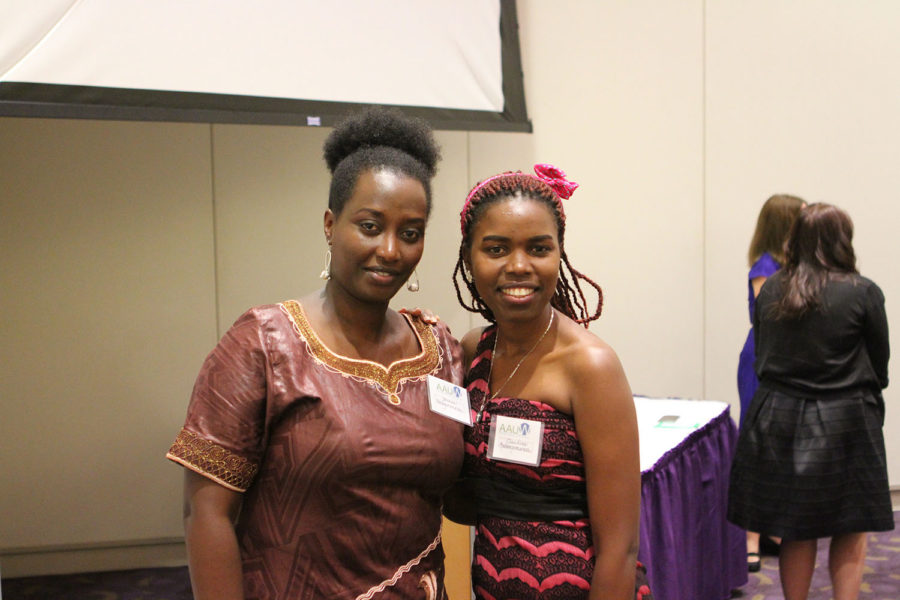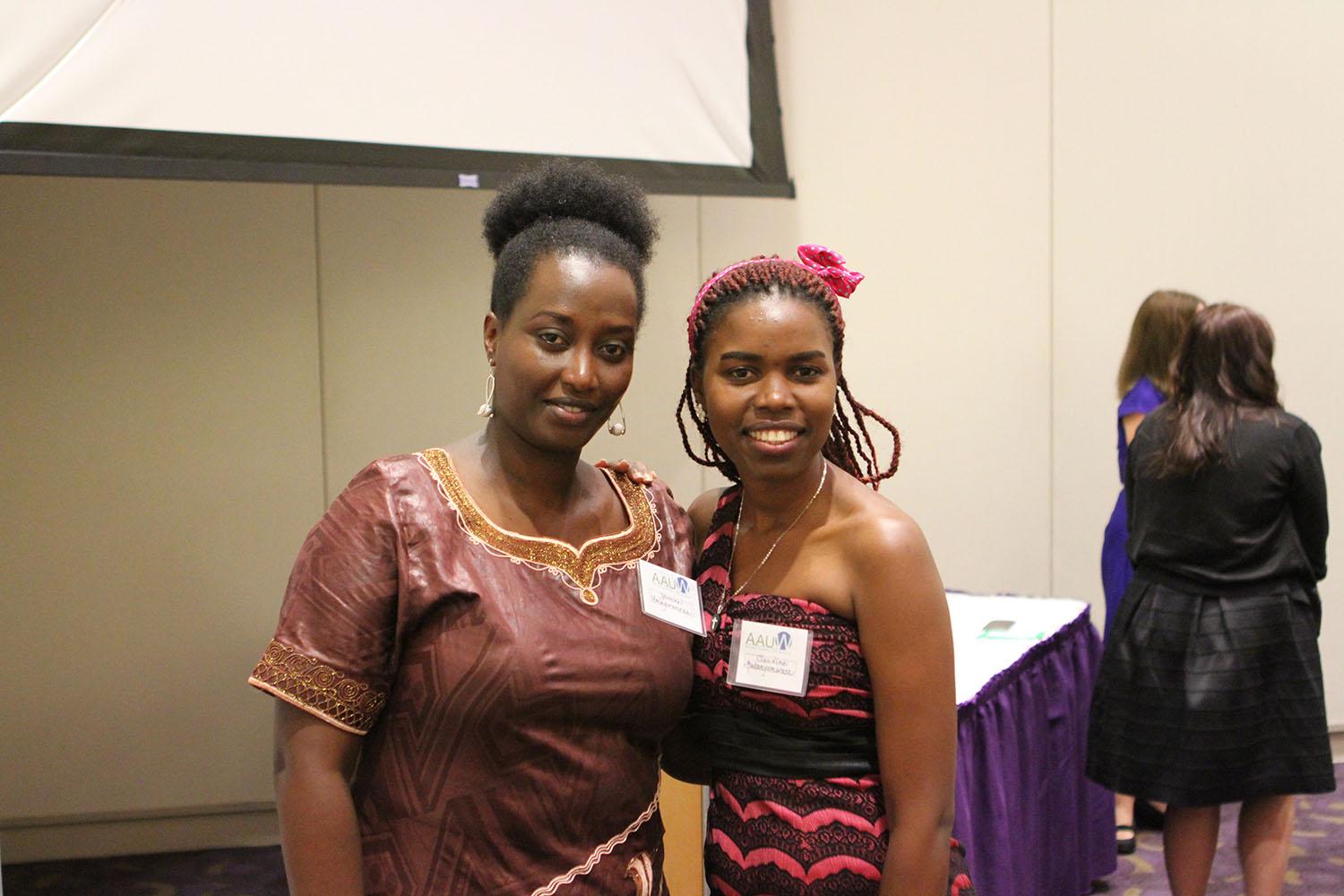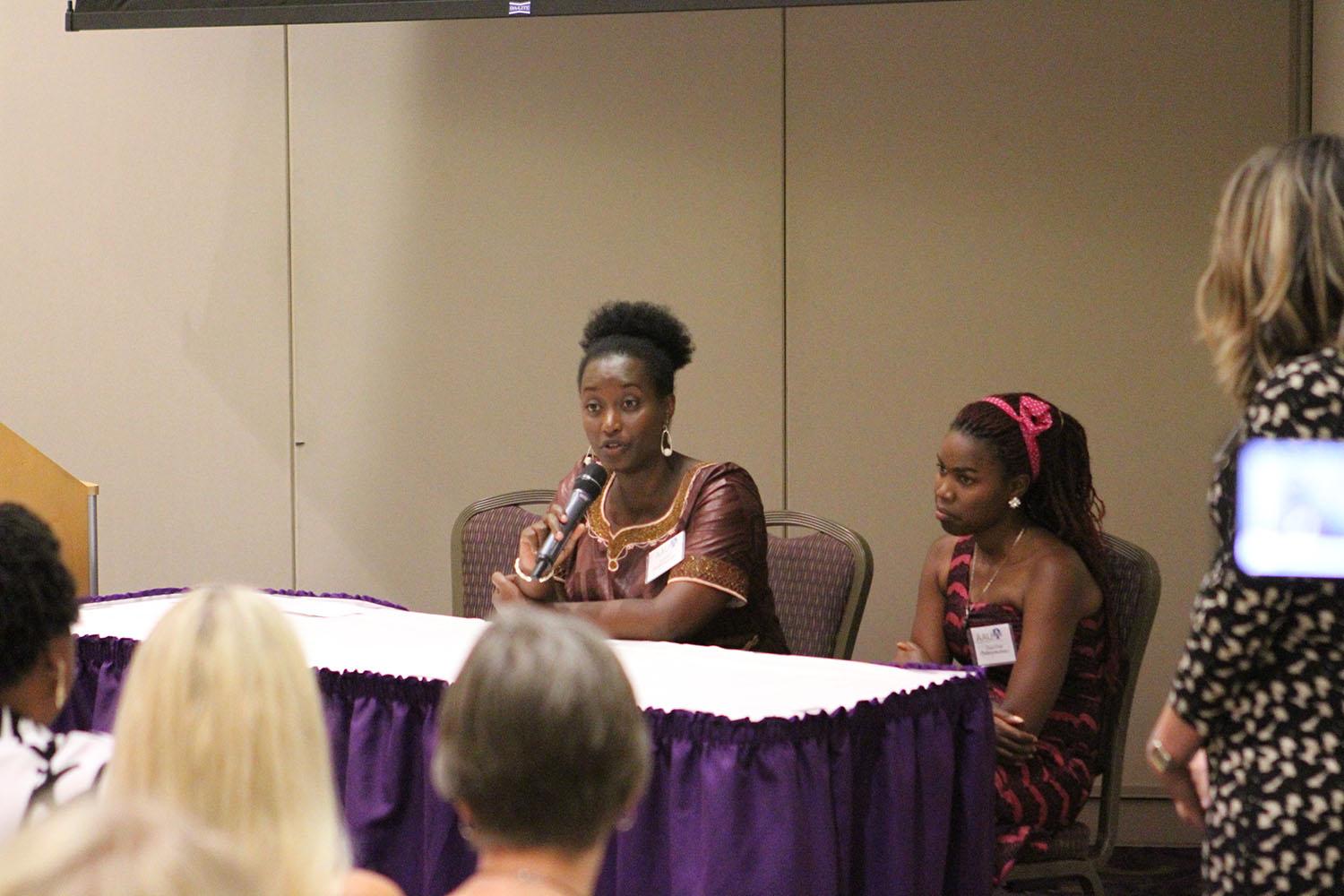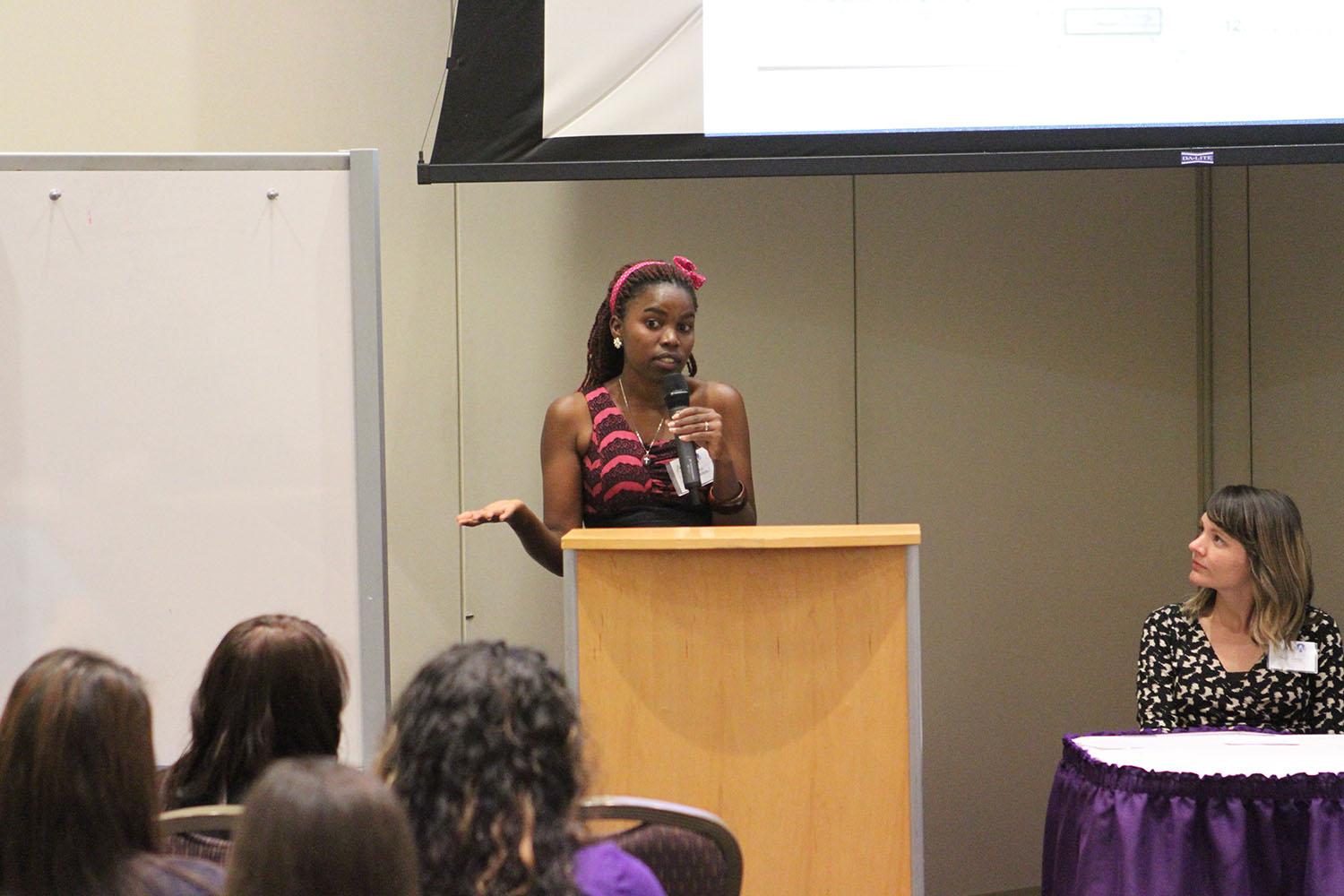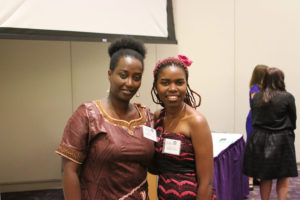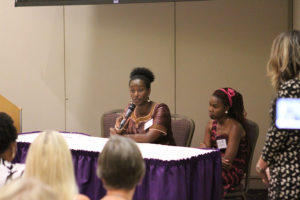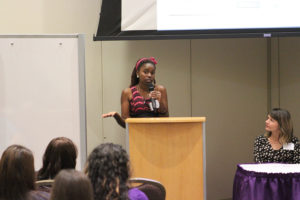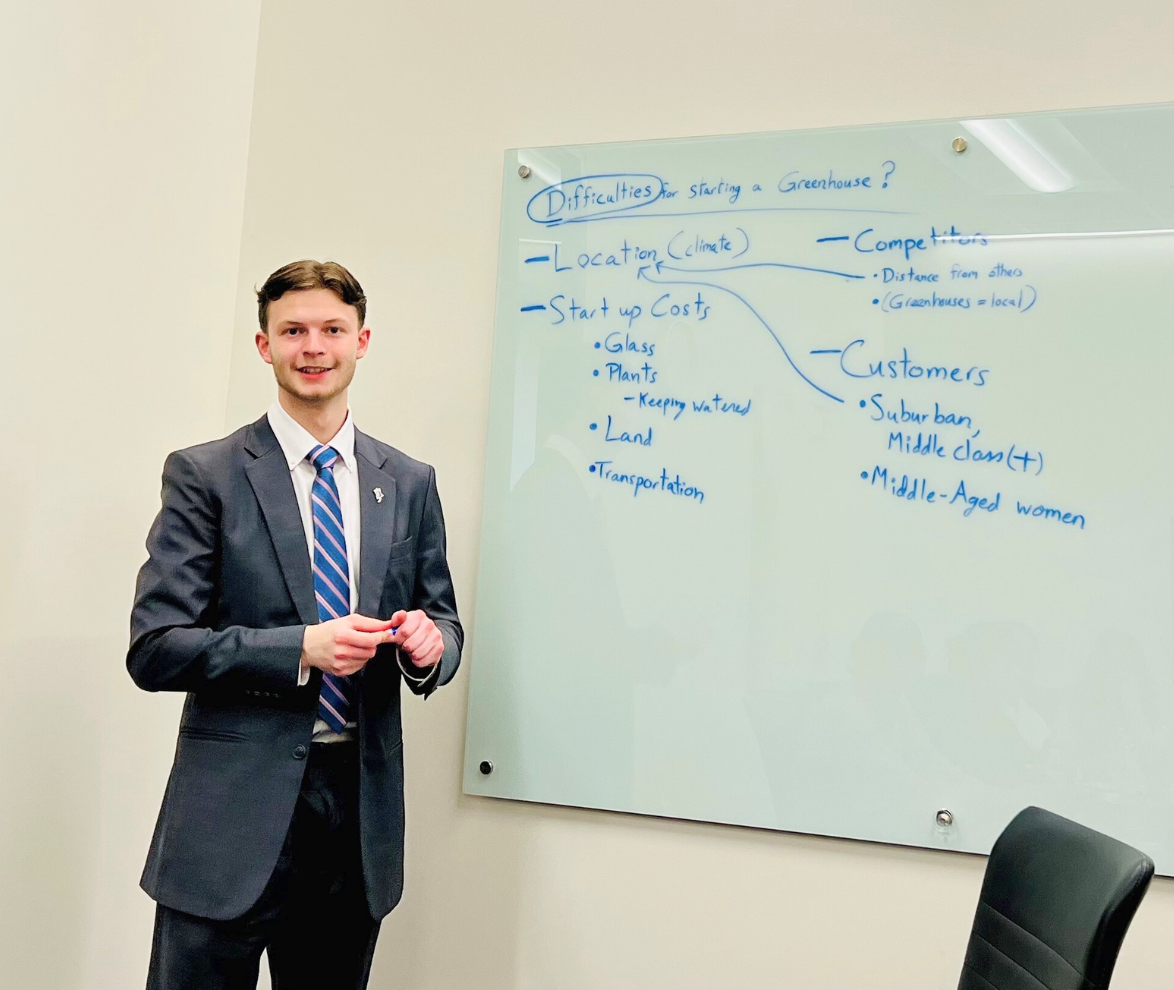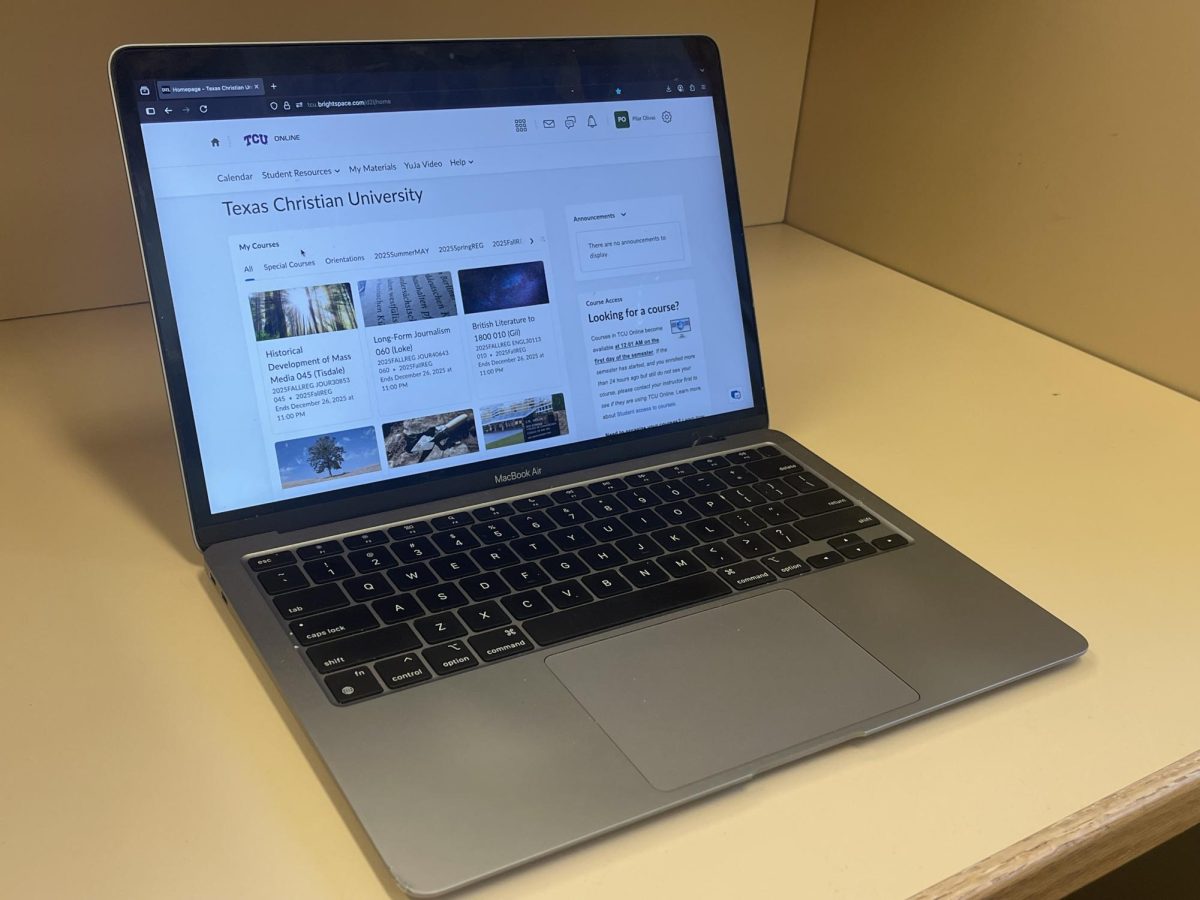Two Rwandan TCU students spoke about the violence against women that occurred during the Rwandan genocide and the lessons that can be learned from it on Wednesday. Yvonne Umugwaneza, a junior communications studies major, and Claudine Mukanyamwasa, a student in the Intensive English Program, shared their experiences of the genocide. “Some women survivors didn’t have legs or hands,” Mukanyamwasa said. “Other women saw their husbands and children being killed and now they are afraid of everything because they are traumatized.” In three months, the genocide claimed the lives of about 800,000 men, women and children, the majority of which were Tutsi. Umugwaneza said there are lessons to be learned about the effects of genocide. “Americans need to know about genocide because it is important to understand how far hatred can take you,” Umugwaneza said. Umugwaneza said it is important to know the cost people pay because of hatred. “Sometimes when you don’t know the cost of something you can just do it easily because you think the consequences won’t be bad,” Umugwaneza said. She said things changed after the genocide. “We went to school,” Umugwaneza said. “Finished our high school. Went to college. We got equal opportunities as men even in the workplace.” “[The government] decided to include [women] in all government institutions,” Umugwaneza said. “To include them in the army. To include them in the national police. To include them in all levels of decision making.” “That’s how we rebuilt the country, because our leaders believed in women,” Umugwaneza said. “They believed in women because if they can raise a family, they can raise a country.” Tauriah Stubblefield, a sophomore social work major, said she liked learning about the genocide and how Rwanda has changed since then. “They survived and they’re moving on and getting better,” Stubblefield said. “So we can implement some of their programs here to help people like the women who are being abused with domestic violence.”
Categories:
Rwandan genocide offers lessons to be learned
Published Sep 29, 2015

